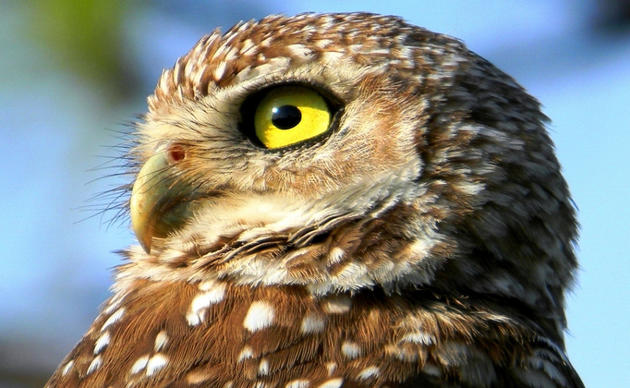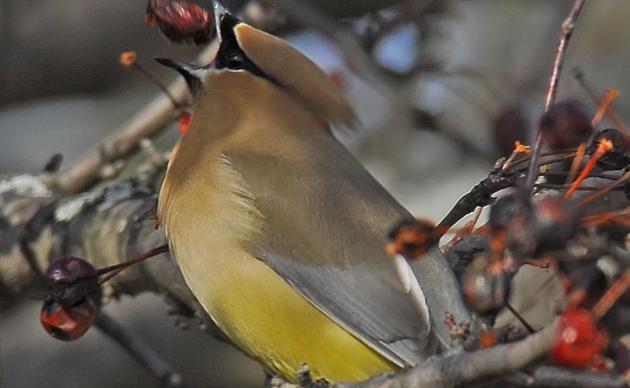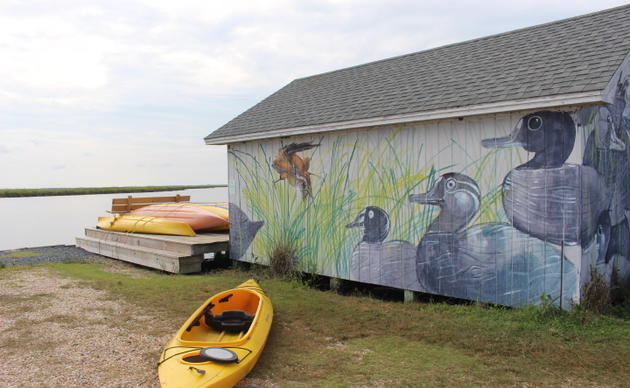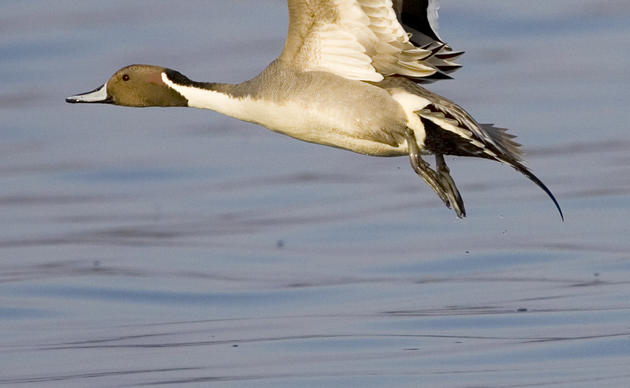A Special Place for Birds
The Donal C. O’Brien, Jr. Sanctuary in Corolla is a very special place for birds in Northeastern North Carolina. Since the 1700’s, the 2,600-acre complex has been protected from nearby development making it one of the last untouched properties of the Outer Banks.
Although Audubon is just getting started with biological surveys of the site, already 167 species of birds have been documented here including:
- Red-throated Loon
- Common Loon
- Pie-billed Grebe
- Northern Gannet
- Brown Pelican
- Double-crested Cormorant
- American Bittern
- Least Bittern
- Great Blue Heron
- Little Blue Heron
- Tricolored Heron
- Great Egret
- Black-crowned Night heron
- Tundra Swan
- Canada Goose
- Snow Goose
- Wood Duck
- Green-winged Teal
- American Wigeon
- American Black Duck
- Mallard
- Northern Pintail
- Gadwall
- Greater Scaup
- Bufflehead
- Red-breasted Merganser
- Turkey Vulture
- Osprey
- Bald Eagle
- Northern Harrier
- Sharp-shinned Hawk
- Red-tailed Hawk
- Merlin
- American Kestrel
- Northern Bobwhite
- King Rail
- Virginia Rail
- Black-bellied Plover
- Semipalmated Plover
- American Oystercatcher
- Killdeer
- Greater Yellowlegs
- Lesser Yellowlegs
- Solitary Sandpiper
- Willet
- Spotted Sandpiper
- Whimbrel
- Ruddy Turnstone
- Common Snipe
- Red Knot
- Sanderling
- Semipalmated Sandpiper
- Least Sandpiper
- Short-billed Dowitcher
- Laughing Gull
- Bonaparte's Gull
- Ring-billed Gull
- Herring Gull
- Greater Black-baked Gull
- Gull-billed Tern
- Caspian Tern
- Royal Tern
- Sandwich Tern
- Forester's Tern
- Common Tern
- Least Tern
- Rock Dove
- Mourning Dove
- Yellow-billed Cuckoo
- Black-billed Cuckoo
- Great Horned Owl
- Common Nighthawk
- Chuck-will's Widow
- Chimney Swift
- Ruby-throated Hummingbird
- Belted Kingfisher
- Red-headed Woodpecker
- Red-bellied Woodpecker
- Northern Flicker
- Downy Woodpecker
- Pileated Woodpecker
- Eastern Pheobe
- Willow Flycatcher
- Eastern Wood Pewee
- Greast-crested Flycatcher
- Eastern Kingbird
- Purple Martin
- Tree Swallow
- Northern Rough-winged Swallow
- Barn Swallow
- Blue Jay
- American Crow
- Fish Crow
- Carolina Chickadee
- Red-breasted Nuthatch
- House Wren
- Carolina Wren
- Marsh Wren
- Golden-crowned Kinglet
- Veery
- American Robin
- Wood Thrush
- Northern Mockingbird
- Gray Catbird
- Brown Thrasher
- Cedar Waxwing
- European Starling
- White-eyed Vireo
- Red-eyed Vireo
- Blue-grey Gnatcatcher
- Northern Parua
- Prothonotary Warbler
- Yellow Warbler
- Magnolia Warbler
- Yellow-rumped Warbler
- Blackburnian Warbler
- Prairie Warbler
- Palm Warbler
- Bay-breasted Warbler
- Black-throated Blue Warbler
- Chestnut-sided Warbler
- Ovenbird
- Blackpoll Warbler
- Black-and-White Warbler
- American Red Start
- Common Yellow-throat
- Yellow-breasted Chat
- Northern Cardinal
- Rose-breasted Grosbeak
- Blue Grosbeak
- Indigo Bunting
- Eastern Towhee
- Field Sparrow
- Seaside Sparrow
- Savannah Sparrow
- Swamp Sparrow
- Song Sparrow
- White-throated Sparrow
- Dark-eyed Junco
- Bobolink
- Red-winged Blackbird
- Eastern Meadowlark
- Boat-tailed Grackle
- Common Grackle
- Brown-headed Cowbird
- Orachard Oriole
- Summer Tanager
- Pine Siskin
- American Goldfinch
- House Sparrow
- Chipping Sparrow
- Hooded Merganser
- American Coot
- Cooper's Hawk
- Glossy Ibis
- Whippoorwill
- Clapper Rail
- White Ibis
- Green Heron
- Piping Plover
The Sanctuary is open by appointment for birding tours. Contact Director Robbie Fearn to make arrangements. Additionally, the Sanctuary is located near several bird refuges and viewing locations including Pea-Island Wildlife Refuge, Lake Matamuskeet and Cape Hatteras National Seashore.
Click here to donate to the Donal C. O’Brien, Jr. Sanctuary so Audubon can continue our work to preserve this special place for birds and wildlife.
How you can help, right now
Stay in Touch with Pine Island
Learn about the bird conservation research taking place at Pine Island and find nature-focused events happening at this Important Bird Area along the Outer Banks in our periodic eBulletin.
Kayak Sign-up
Click Orange Button to register for Guided Kayak Programs
Protect the Sanctuary
Every donation will be used to protect the 6,000 acres of marsh complex within the sanctuary and the wildlife it supports.




